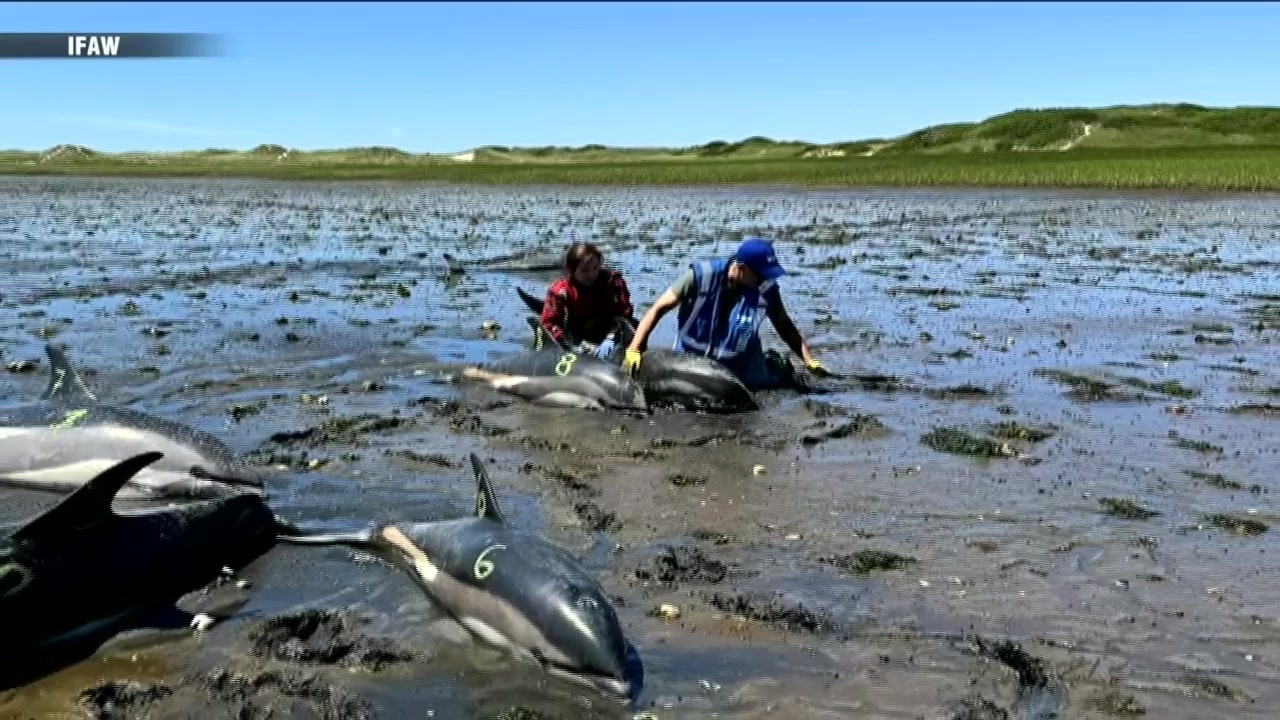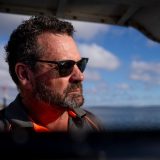Cape Cod is one of the most dangerous places in the world for dolphins. A massive stranding is now raising questions about why they keep happening, and what’s being done to protect these animals.
Nearly 150 dolphins became trapped in the mud off Wellfleet in June, marking the largest stranding in United States history.
Volunteers with the International Fund for Animal Wellfare (IFAW) say they’ve never seen anything quite like it.
“When you see all the white bellies, it was almost like a human catastrophe out there like it was a war,” said Scott Steeves.
People with the organization knew there was no time to waste. Rescuers spent hours freeing the dolphins, waiting for the tide to rise. Volunteers spent three days helping to guide the animals back into the open ocean.
“We were trying to scare them out into deeper water out of the hook,” said Steeves.
Cape Cod’s hook shape often traps and disorients marine animals. The 16 mile coastline from Barnstable to Wellfleet accounts for a quarter of U.S. strandings.
But geography isn’t the only threat, experts say the rising ocean temperature also poses a risk.
Since the shore water is getting warmer, fish are swimming closer to the coastline. Dolphins follow those fish, then often get trapped in the shallow water.
“All of a sudden they’re not swimming, and they’re stranded at that point that’s where we step in,” said Emily Millen, an IFAW stranding technician.
All of these strandings led the IFAW to open the first dolphin ICU in Orleans. Dolphins who go to the facility receive health examinations so technicians can find out what the animal needs to get back into the water the fastest. The dolphins are given fluids, vitamins, and get blood work and other diagnostics done.
All of those steps lead to a better life for the dolphins.
“People and animals can survive together we can help each other make it in this world. The animals need us and we need them,” said Debbie Pearl, an IFAW volunteer.
“When you see them swim off, there’s an incredible release,” said another IFAW volunteer.
Volunteers say that connection is what keeps this mission going.
The IFAW is looking for more volunteers to be their first responders.
Any resident of Cape Cod can apply to join their team.
Learn more: https://www.ifaw.org/international/action/marine-mammal-volunteer-opportunities
Source:: News – Boston – whdh








